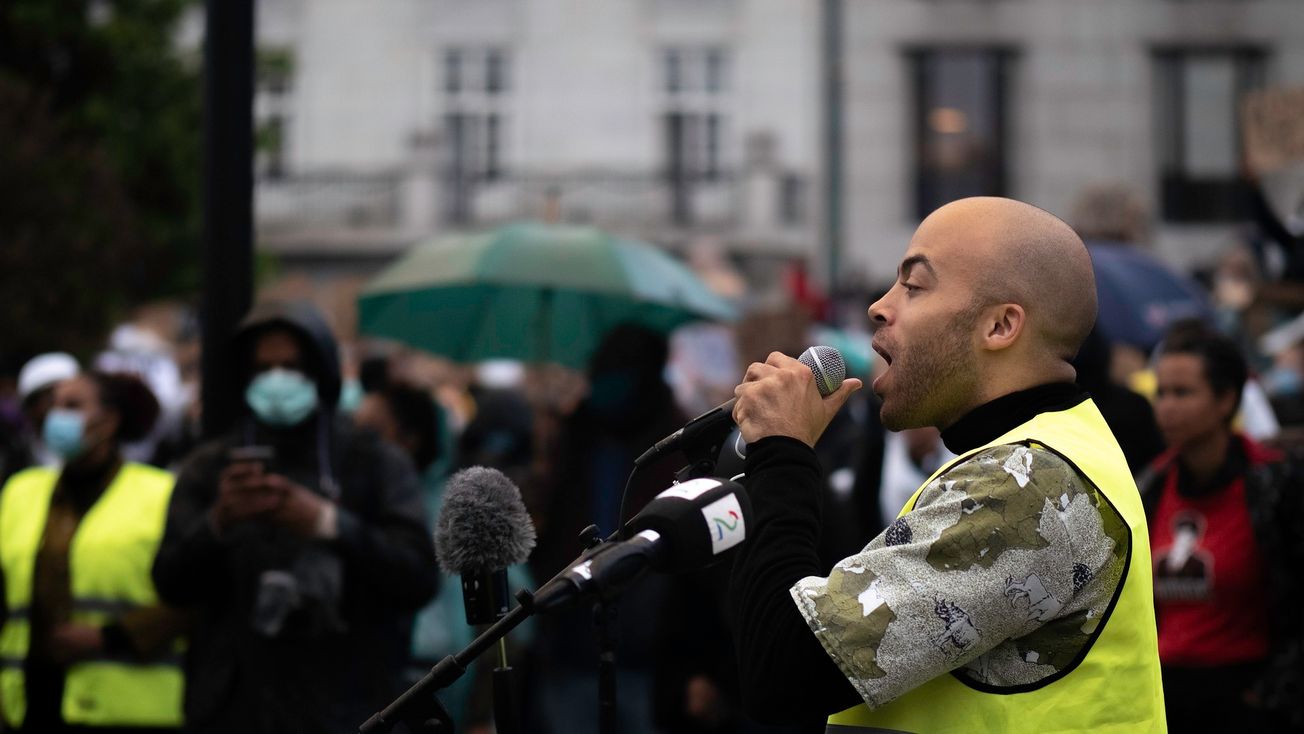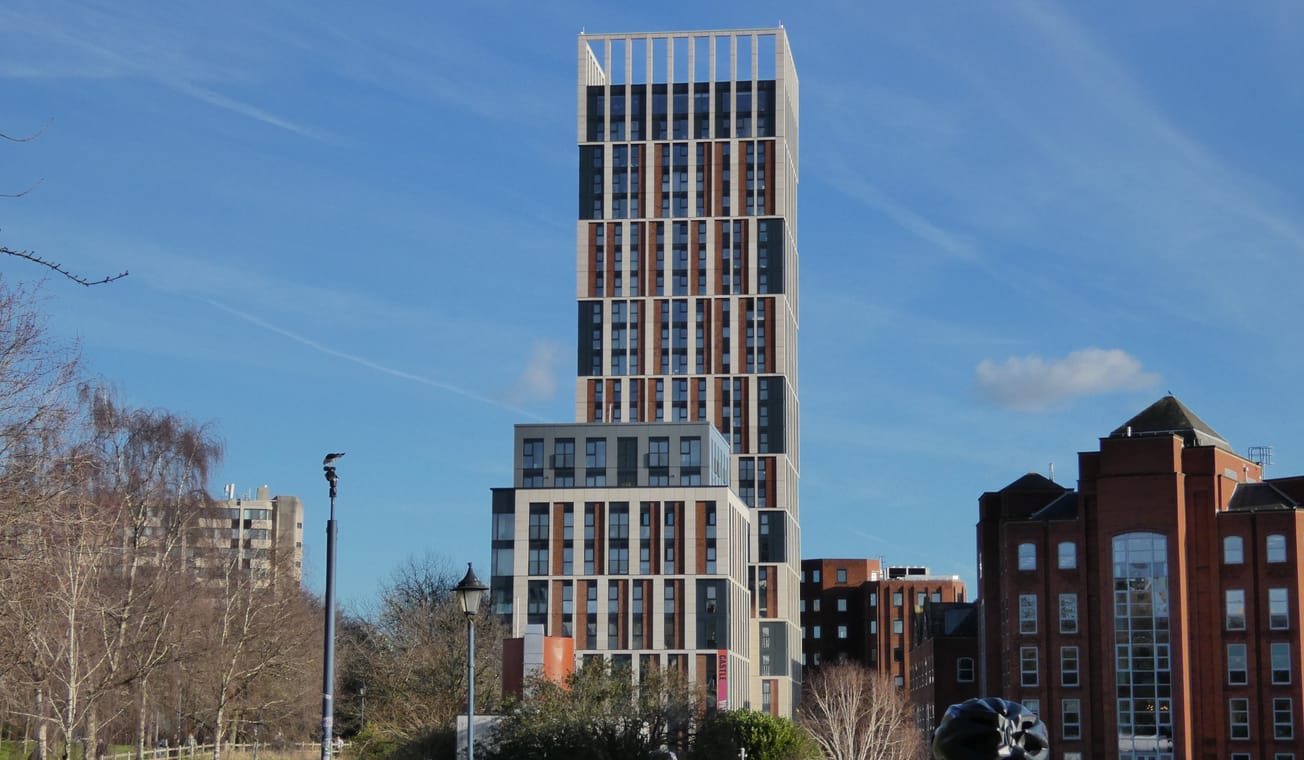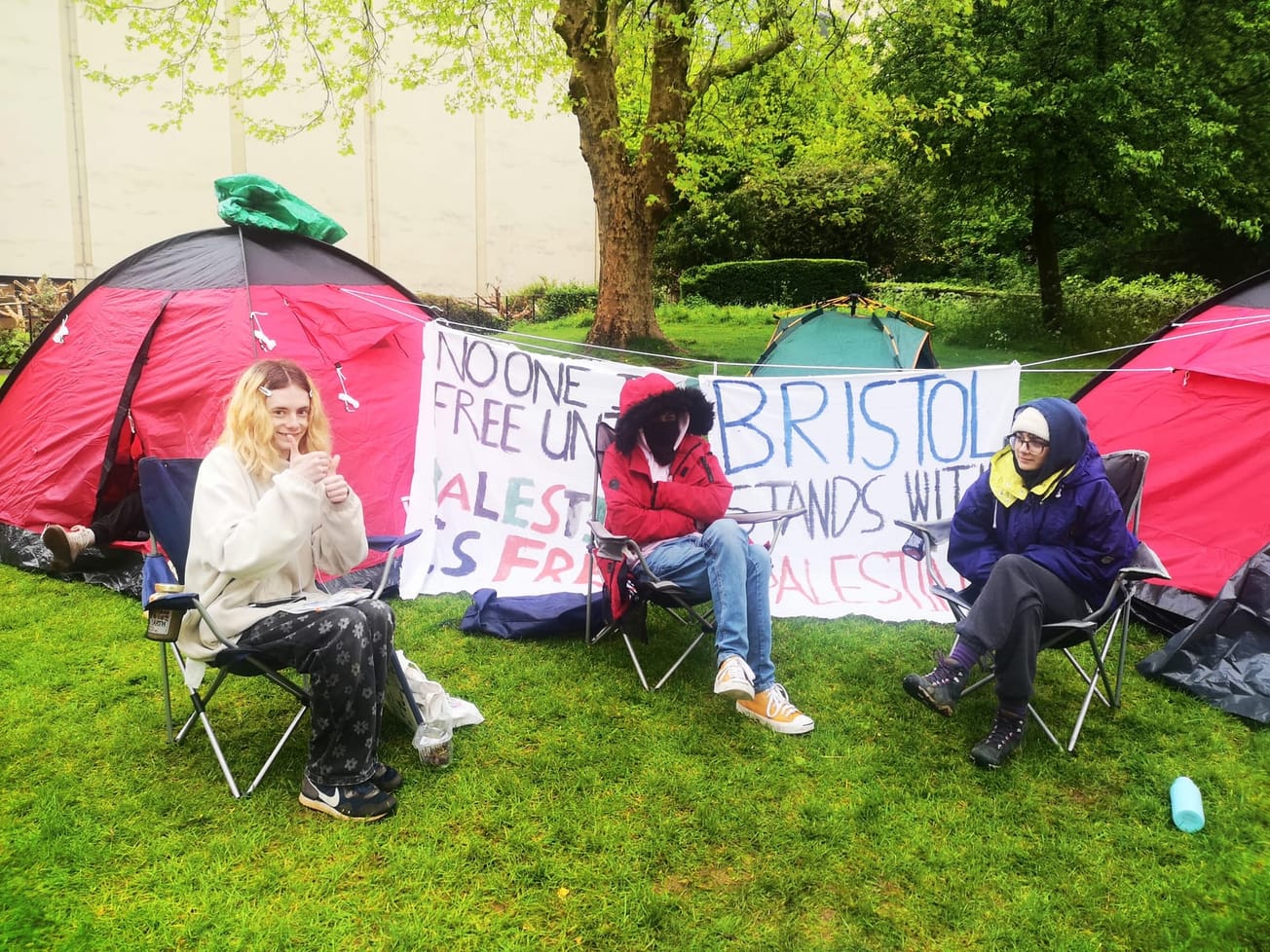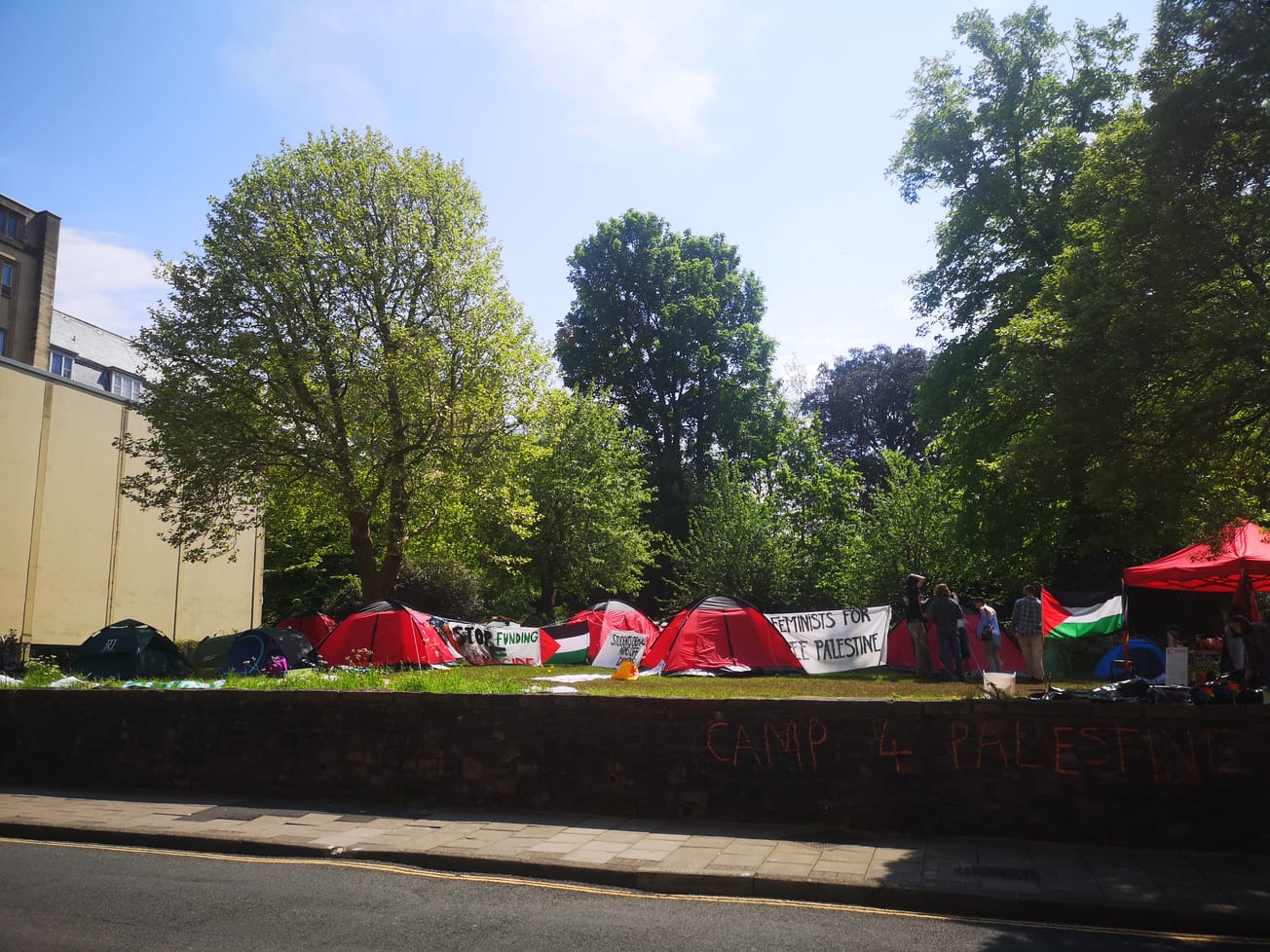By Kyia Small, Second Year English and Spanish
As the bells of St. George’s tolled 7pm on Tuesday 20th September 2022, masses of like-minded people congregated outside the former church to listen to the demands and ideas proposed by a multitude of left-wing speakers in response to the cost-of-living crisis.
‘Enough is Enough’ is a community-led campaign created in response to the soaring cost-of-living. The campaign was recently founded by a network of trade unions (such as the National Union of Rail, Maritime and Transport Workers), non-profit organizations and MPs – most notably Zarah Sultana. They have united to achieve a set of five demands: a real pay rise, a slash in energy bills, the end of food poverty, the taxation of the rich and ensuring that all have access to decent homes.
The event itself took place at two locations to accommodate the huge turnout of people who wished to display their allegiance to the cause. The shift from mundane, everyday life to the palpable energy exuberated at the event was stark. Activists shut down Park Street and various stalls touted ‘cut profits, not pay’ and ‘your need or their greed’, encapsulating the shared frustrations of everyone attending the event.
With the phrase ‘it’s time to turn anger into action’ echoing through the walls, attendees filtered onto balconies decorated with banners, looking down upon an elevated stage backlit with bright, purple-tinged lights. Chants, footstamps and boos—deployed concurrently with the term ‘Tory’—greeted the first speaker as they took to the stage.
The passion with which the presenters spoke reverberated around the room. It was obvious that the speeches were never single narratives, but rather consisted of multiple, tangled voices that drifted in and out of the consciousness of the audience.

The striking resemblance between rising living and human costs was brought into sharp focus when UCU President Janet Farrar mentioned how ‘4.3 million children live in poverty—50 per cent of whom come from BAME backgrounds’. It was clear that despite presenting the audience with facts about the current cost-of-living crisis—and the extortionate prices it has incurred—it was the emotion and passion with which Farrar spoke that truly captured their imagination.
The shift from mundane, everyday life to the palpable energy exuberated at the event was stark.
The speaker once again acted as a mouthpiece for the working class when she shared some of the testimonies received from members of the union: ‘I'm literally living hand to mouth’, ‘I love teaching but I don't think I can afford to stay in the profession’ and ‘the only reason I am able to pay the bills is because I still live with my mother in my forties’. An unfortunate inevitability of the #UCUrising campaign, which aims to bring 151 universities to a halt through strike action, is that it delays the circulation of funds that workers want in their pockets. This is one reason why ACORN director Nick Ballard described the recent strike action as a ‘last resort’.
Bristol says #EnoughIsEnough 👊
— Enough is Enough (@eiecampaign) September 20, 2022
So many people came to our rally tonight we held an overspill in a park.
Donations also collected for foodbanks across the city 👏 pic.twitter.com/diT2DuoJPh
ACORN (the Association of Community Organisations for Reform Now), who campaigned against injustices within the local community and entreated attendees to sign a petition to reopen public toilets, were particularly prominent at the event. Some of their recent triumphs include settling a dispute over residential warden services being cut from sheltered housing schemes in Swindon and advancing the Renters Reform Bill, which sought to give privately rented tenants the same rights as the socially rented sector through a reappraisal of the law under Section 21 'no fault' evictions.
A shift towards better housing conditions will undoubtedly be welcomed by students who have called for reform in the purportedly exploitative student rental market—it only takes a quick glance at the National Student Accommodation Survey to reveal that one in three are affected by a lack of heating or water.
The University of Bristol currently dedicates 25 per cent of places to international students who pay on average four times as much as domicile students, without having the capacity to affordably house them first. The aims of the Enough is Enough campaign certainly align with year-on-year complaints by students that the University’s accommodation provisions are unable to withstand the massive influx of students arriving to study at the University each year.
Fantastic Enough is Enough Event in Bristol with huge support for striking Postal & Telecom workers. Solidarity is Strength pic.twitter.com/jZpRSexDsW
— Southwestregion@cwu.org (@Southwestregio3) September 20, 2022
While the event highlighted the support available for job seekers and workers, it failed to mention any proposed solutions for students who do not fall into either of these categories. This represents a prominent issue, with young people being left out of the picture when it comes to living cost discussions, under the false pretence that the maintenance loan will be enough to sustain them. Save the Student has calculated that the average monthly shortfall is £340, and parents are having to pay the difference because DWP (the Department for Work and Pensions) does not offer Universal Credit to students with parental support. This could suggest that some students are expected to act like adult workers even though they have the financial security of jobless children.
High stakes in the hunt for housing: how has increased competition affected the search for student accommodation?
The cost-of-living crisis is threatening to worsen student wealth disparities
It was perhaps fitting that the event took place in a renovated 1920s church, as the concerns raised were not new. One student in attendance, who wished to remain anonymous, told Epigram that it is easy to forget that education is a full-time commitment because so many students also have to take on part-time roles. They believed the University 'could better communicate with the council so that they could devise a strategy for the city, it is not a one-solution problem—it's systemic’.
It requires continued collective action to achieve tangible gains. The Enough is Enough protest has a long way to go yet.
Featured Image: Pixabay
Do you support the 'Enough is Enough' campaign?








